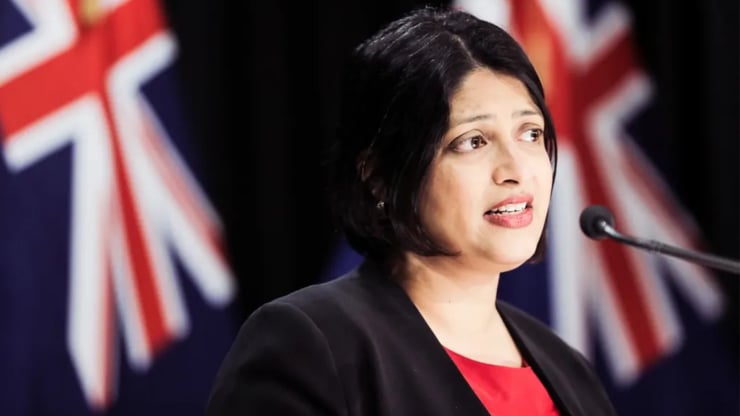Banning Virginity Testing On Indian Origin MP's Agenda

The two MPs of Indian origin in the current Parliament - Labour's Priyanca Radhakrishnan and ACT's Parmjeet Parmar - have lodged members' bills on issues important to them.
Radhakrishnan, who has been a lawmaker since 2017, has proposed the Crimes (Virginity Testing Practices) Amendment Bill which "seeks to protect vulnerable women and girls by amending the Crimes Act 1961 to introduce new offences that criminalise virginity testing and the related practice of hymenoplasty".
Meanwhile Parmar, who has been an ACT Party MP since 2023 (she was a National Party MP earlier between 2014-2020), has proposed the Sale and Supply of Alcohol (Participation in Licensing Decisions) Amendment Bill, which "seeks to strike a balance between the rights of licensed businesses and the interests of the local community by ensuring a fair and transparent process for the application and renewal of liquor licenses".
Procedure
According to Parliamentary rules, members' bills are bills introduced by members who are not ministers.
"Every second Wednesday the House gives precedence to local, private, and members' bills. On these days members' bills are debated," the Parliament website says.
"At least eight members' bills awaiting first reading must be on the Order Paper on each members' day. When a space on the Order Paper becomes available, a ballot is held to decide which members' bill(s) will be introduced.
"Members enter bills in the ballot by lodging notices of proposal with the House Office and providing a copy of the proposed bill.
"The proposed bill is then posted on the website and members can publicly indicate their support for the bill prior to the ballot."
Importantly, if 61 or more non-executive members indicate support for a member's bill, the bill will be introduced without needing to be selected through the ballot, according to the Parliament rules and procedure.
Virginity testing
Calling virginity testing and hymenoplasty invasive and harmful practices, with no medical or scientific basis, the former Labour minister wants these practices to be formally recognised as a crime because these violate a woman's human rights.
"In many societies around the world, purity before marriage is an expectation. In some cases, this gets taken further and the expectation is to prove it," Radhakrishnan said.
"This is not a cultural practice; it's rooted in patriarchy and is a human rights violation. Only women are expected to be pure and only women are punished if they're not."
Claiming great support from the community for the bill, Radhakrishnan said she had worked on similar issues before entering the Parliament, where human rights violations had been guised as cultural practices.
"I am aware [that] these issues often remain hidden," she said.
"The UK has already banned virginity testing and hymenoplasty, and the World Health Organisation has called for its global ban. It's time New Zealand also recognises this form of gendered abuse and acts to end it."
Alcohol licensing
Claiming her party ACT "is determined to unwind cumbersome red tape that imposes unnecessary cost, stress, and uncertainty on businesses", Parmar said she was made aware of issues in alcohol licensing by a business association.
"Many liquor shops are now having to spend significant amounts of time and money on consultants and lawyers to seek help against the uncertainty they face for the future of their business. The individuals who own these shops have invested their hard-earned savings and often have their homes mortgaged to build a life for themselves and their families," the lawmaker said.
"It is important that we have a balanced approach that respects the rights of legitimate businesses along with the interests of the community in the vicinity."
Parmar said her bill sought to strike a balance between the rights of licensed businesses and the interests of the local community by ensuring a fair and transparent process for the application and renewal of liquor licences.
"[Her] bill defines who is eligible to oppose an application for, or renewal of, a liquor licence, with a focus on those parties most affected by the operation of the business," she added.
"It also seeks to provide certainty to licensed outlets in the event of a new sensitive site appearing nearby that under current legislation could threaten a licence renewal."
The ACT Party's ethnic communities spokesperson pushed back on suggestions it (issues with alcohol licensing) was an Indian community issue.
"This is [because] a significant number of liquor outlets are owned by Kiwi Indians. To me it is important such distracting perspectives are not allowed to overshadow the real concern. My commitment is to ensure our policies create fair and just business environment for all legitimate business regardless of business owners' ethnic backgrounds," Parmar said.
"I am quite confident that I will be able to get the support needed for it [when the bill is drawn from the ballot] to pass into law."
This article was first published by RNZ





